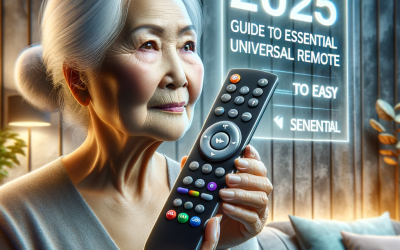How to Choose the Best Medical Alert System: Essential Tips
Ah, the joys of modern technology! The gadgets we have now can do everything but the dishes. If you’re like me, navigating the sea of senior safety tech can feel overwhelming. But, never fear—I’m here to help break it down for you. Choosing a medical alert system for your elderly parents—or maybe even for yourself—is a decision you want to get right. Whether it’s the snazzy new models with all the bells and whistles or the reliable old classics, finding the right device could make a world of difference in maintaining independence and peace of mind.
Understanding Medical Alert Devices: Why They Matter
Before diving into specifics, let’s take a moment to appreciate what these devices actually do. Medical alert devices ensure that help is just a button press away, offering immediate response in emergencies like falls, medical issues, or even just the occasional senior moment while in the garden. With features such as fall detection and GPS tracking, today’s systems provide comprehensive support that can really put the “safe” back in “safety.”
How to Choose the Best Medical Alert System: Essential Features to Consider
There’s a lot to consider when choosing a medical alert system. Here’s a breakdown of the essential features that you need to keep an eye on:
Home-Based vs. Mobile Systems
- Home-Based Systems: Traditionally connected via a landline. These are excellent if your loved one spends most of their time at home. They offer reliable in-home coverage, ensuring quick assistance if needed.
- Mobile Systems: For the more adventurous types who love a daily stroll or errand trips. These systems often include GPS, so help can reach you even if you’re out and about.
Fall Detection
Fall detection technology has improved by leaps and bounds. Devices with this feature can automatically sense a fall and contact help without requiring the wearer to press a button. This feature is especially crucial if the user has a history of falls or balance issues.
Monitoring Services
The fact that someone is always on the line for emergencies brings immense comfort. Look for systems with 24/7 monitoring, ensuring a responsive, human touch when it matters most. Some services even offer multilingual assistance, which can be a boon.
Ease of Use
If you’ve ever struggled to work a smartphone, you’ll appreciate this. Medical alert devices should be straightforward to use, with a user-friendly interface. Avoid systems that require frequent maintenance or complicated charging setups.
Comparing Popular Medical Alert Devices
Now to the fun part—comparing the options. Here’s a handy table to simplify your decision:
| Feature | Device A | Device B | Device C |
|---|---|---|---|
| Type | Home-Based | Mobile | Hybrid |
| Fall Detection | No | Yes | Yes |
| GPS | No | Yes | Yes |
| Battery Life | 5 Years | 3 Days | 7 Days |
Pros and Cons of Popular Medical Alert Devices
Device A
- Pros:
- Long battery life
- Simple setup
- Cons:
- No GPS or fall detection
- Limited to home use
Device B
- Pros:
- Comprehensive mobile coverage
- Includes fall detection
- Cons:
- Shorter battery life
- Requires regular charging
Device C
- Pros:
- Best of both worlds
- Fall detection and GPS
- Cons:
- More complex setup
- Higher upfront cost
Making Your Decision: Key Points to Remember
Here are some actionable tips to help you make the best choice:
- Assess the User’s Lifestyle: Is your loved one mostly at home or do they enjoy going out? This will help determine whether you need a home-based or mobile system.
- Check Technological Comfort: Choose a device that matches the user’s tech-savvy level. Remember, it’s not a gadget to collect dust!
- Think About Budget: These systems can vary significantly in cost. Make sure you understand both upfront and monthly fees.
- Trial Periods and Contracts: Some services offer trial periods. Take advantage of these to ensure that the system fits perfectly into the lifestyle.
FAQs
- What is fall detection?
Fall detection is a feature in many medical alert devices that automatically detects a fall and contacts emergency services immediately. - How does GPS work in mobile systems?
GPS allows users to be located anywhere, which is essential in emergencies occurring outside the home. - Are these systems waterproof?
Many medical alert devices are water-resistant or waterproof, ideal for wearing in the shower or during water-related activities. - What happens if the button is pressed by accident?
Most systems allow you to inform the dispatcher that everything is fine, avoiding unnecessary emergency responses. - Do I need a landline for a medical alert system?
Not necessarily. Many devices now use cellular networks, providing flexibility beyond the confines of a landline.
Choosing the best medical alert system doesn’t have to be daunting. By understanding the needs, lifestyle, and preferences of the user, you can select a device that provides safety and peace of mind—all without breaking the bank.




0 Comments